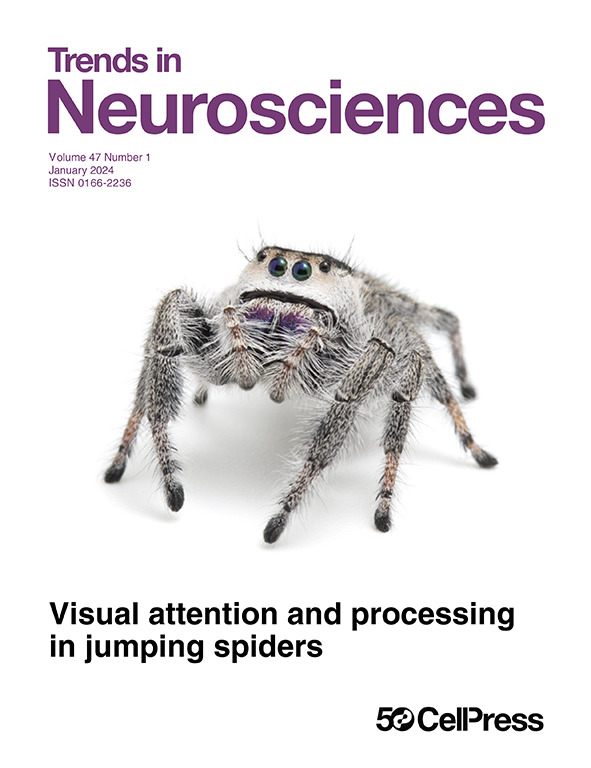啮齿动物痛觉感受器中 Piezo2 的新型抑制因子
IF 14.6
1区 医学
Q1 NEUROSCIENCES
引用次数: 0
摘要
压电和跨膜通道样(TMC)家族的成员都是哺乳动物真正的机械传导者。在最近的一项研究中,Zhang、Shao 等人发现 TMC7(一种对机械不敏感的 TMC)会抑制 Piezo2 依赖性机械感觉,这意味着 Piezo2 通道的细胞环境在正常和病理机械痛反应中的重要性。本文章由计算机程序翻译,如有差异,请以英文原文为准。
A novel suppressor of Piezo2 in rodent nociceptors.
Members of both the Piezo and transmembrane channel-like (TMC) families are bona fide mammalian mechanotransducers. In a recent study, Zhang, Shao et al. discovered that TMC7, a non-mechanosensitive TMC, inhibits Piezo2-dependent mechanosensation, with implications for the importance of cellular context for Piezo2 channels in normal and pathological responses to mechanical pain.
求助全文
通过发布文献求助,成功后即可免费获取论文全文。
去求助
来源期刊

Trends in Neurosciences
医学-神经科学
CiteScore
26.50
自引率
1.30%
发文量
123
审稿时长
6-12 weeks
期刊介绍:
For over four decades, Trends in Neurosciences (TINS) has been a prominent source of inspiring reviews and commentaries across all disciplines of neuroscience. TINS is a monthly, peer-reviewed journal, and its articles are curated by the Editor and authored by leading researchers in their respective fields. The journal communicates exciting advances in brain research, serves as a voice for the global neuroscience community, and highlights the contribution of neuroscientific research to medicine and society.
 求助内容:
求助内容: 应助结果提醒方式:
应助结果提醒方式:


